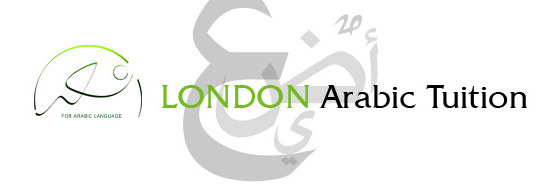So you’ve chosen to try learning Arabic out (extraordinary choice, coincidentally!), however presently you’re understanding that it’s not exactly that straightforward… While Arabic is spoken across the Middle East and North Africa from Western Sahara to Oman, every nation has its own tongue and these can contrast essentially from one country to another and even from one town to another.
Furthermore, before you even ponder which lingo you may get a kick out of the chance to have practical experience in, you really want to conclude whether you ought to try and be learning Arabic dialects by any means (yet!), or regardless of whether you should zero in on learning Modern Standard Arabic all things being equal.
First and foremost, you’re in good company! Nearly each and every individual who chooses to learn Arabic fights with this inquiry.
From one perspective, Modern Standard Arabic (or fusha) is perceived at minimum to some degree across the entire of area, in contrast to some neighborhood tongues (amiyya). On the other, not very many Arabs really talk it in the city – which can be tremendously baffling when you’ve invested a huge load of energy learning language structure, just to observe you’re never really going to utilize it!
So what would it be advisable for you to learn, Modern Standard Arabic or a neighborhood speaking? Fusha or amiyya?
In all actuality, there’s nobody size-fits-all response to this inquiry – so be careful about any individual who tells you there is! It truly relies upon WHY you’re learning Arabic in any case and what you’re wanting to utilize it for. The advantages and disadvantages records underneath will assist you with concluding which is ideal for you…
MSA
Present-day Standard Arabic (otherwise called MSA, old style Arabic or fusha) is the syntactically right, normalized Arabic utilized recorded as a hard copy and most proper discourse across the Arab world. Most new Arabic understudies will quite often learn MSA, especially in colleges. MSA is perceived by most Arabs, however, it is viewed as extremely formal and scarcely any individuals use it in the city.
Aces of learning MSA
Learning MSA will permit you to comprehend the Arabic media, official reports, books and scholastic diaries – fundamentally most composed materials – across the Middle East and North Africa, paying little heed to what vernacular local people really talk about. This is especially useful in the event that you are probably going to utilize Arabic at work or concentrate on the writing and governmental issues of the locale. It’s additionally useful for staying aware of local news and improvements in case you’re not really situated in the Middle East.
MSA is organized and linguistically right, dissimilar to neighborhood vernaculars which are more casual and have been created as communicated in dialects. So certain individuals really find MSA more straightforward – however, this relies upon how you like to learn.
MSA is viewed as the most flawless variant of Arabic and it is generally regarded across the Middle East and North Africa – and among non-Arab Muslims around the world – on the grounds that it is the language of the Quran. Learning MSA thusly offers a remarkable knowledge of Arabic culture and Islam.
There are bunches of books, sites, and different assets available for learning MSA, contrasted and moderately not many lingo learning assets.
What’s more presumably the greatest advantage of all – regardless of whether MSA isn’t generally spoken, it is basically perceived by the vast majority across the entire of MENA district (with the conceivable special case of some remote, rustic networks). So while MSA may not generally be the most down-to-earth, you don’t risk getting the hang of something helpful in one nation yet absolutely futile in another.
CONS of learning MSA
MSA isn’t actually spoken in the city. Assuming that you attempt to speak MSA to local people, you may get some interesting looks and surprisingly a couple of chuckles relying upon where in the Arab world you are. (By and by, I’ve commonly observed that Levantine and Gulf Arabs are exceptionally glad to address you in MSA. In North Africa, then again, I’ve found individuals somewhat more hesitant – however that is only my experience!)
It’s HARD. Indeed, it’s more organized than vernacular and there are additional learning assets accessible, yet the language can be a genuine b*tch. Additionally, it tends to be difficult to spur yourself to learn tables and tables of action word formations and case endings, realizing that you’re presumably never really going to utilize them but to finish a test.
Since MSA will in general be composed rather than spoken, it tends to be hard to track down freedoms to rehearse. Most instructed Arabs communicate in English (or other European dialects), and this regularly feels more normal to individuals than having a discussion in fusha.
Arabic lingos (referred to locally as amiyya or lahja) contrast immensely from one country to another – and even town to town – across the Middle East and North Africa. The Pros and Cons of learning a tongue rely to a great extent upon which lingo you need to learn.
A few tongues, similar to Egyptian, are sensibly surely known all through the locale (this is on the grounds that Egypt is an exceptionally huge country with immense media and media outlets, so Egyptian movies have been broadly circulated across the district). Others, similar to Iraqi and Moroccan, are very unmistakable and hard to comprehend assuming you’re curious about them.
You will utilize it in discussion with neighborhood individuals definitely more than you may utilize MSA. Amiyya is the language of the road. It is, by its actual nature, everyday.
So not exclusively is it for all intents and purposes exceptionally valuable in daily existence, it’s likewise simple to track down freedoms to rehearse in case you’re situated in the locale.
Many consider learning a lingo more straightforward than learning MSA. Since they’re more everyday in nature, vernaculars are simpler to get through talking and tuning in (also there’s tiny syntax to fold you’re head over, which can be a gigantic mood killer with MSA!).
CONS of learning a lingo
While learning a neighborhood tongue is inconceivably down to earth, certain lingos are totally pointless outside of the nation where they’re spoken. A few tongues should be various dialects – and surprisingly a few Arabs battle to see one another! For instance, an Egyptian Arabic educator of mine once let me know that when she visits Morocco, she doesn’t comprehend even a peep about the Moroccan tongue (or darija as it is known locally). So by deciding to get familiar with a nearby tongue rather than MSA, you risk being right once again at the starting point should you choose to move or go to an alternate piece of the locale.
Learning a lingo won’t be extremely useful to understand books or see most Arabic media, which are generally in MSA.
While neighborhood lingos can be more straightforward to get through tuning in and addressing local people, in case you’re the sort of individual who inclines toward more organized learning then you may favor MSA. Like any conversational, communicated in language, amiyya will in general toss the standard book out the window!
As currently referenced above, there are relatively few assets accessible for learning neighborhood vernaculars – however, once more, this relies upon which tongue you need to learn. For instance, there are more assets out there for learning Levantine and Egyptian than, say, Gulf Arabic.
“Amiyya is the language of the road” – Downtown Cairo (picture: Lin Loke Travel)
Toward the day’s end, regardless of whether you choose to learn MSA or a nearby tongue relies totally upon your purposes behind learning Arabic in any case.
Assuming you have a more extended term view to learning the language and you’d ultimately prefer to become familiar with various tongues, it very well may be a smart thought to learn MSA first. This will give you a strong establishment in the sentence structure and beginnings of the language, and might assist you with keeping away from disarray and hybrid between various lingos by assisting you with seeing how they’re completely connected.
A similar applies in case you don’t know where in the locale you’re probably going to invest energy. It’s smarter to learn MSA and get a vernacular later than to become familiar with a tongue you may never really utilize.
In like manner, assuming you’re learning for work or out of interest in the area’s governmental issues and culture, yet you’re not really going to be situated in the locale, you’ll presumably find MSA generally valuable for understanding composed Arabic and the media.
Then again, assuming you’re learning Arabic for commonsense purposes (for instance, you’re moving to the area or are keen on a particular nation), learning a nearby tongue will most likely be more helpful – also it will save you long periods of attempting to get your head around convoluted syntax. A similar applies assuming that your need is talking and discussion rather than perusing and composing.
In case you’re as yet here subsequent to perusing all that, then, at that point, you’re presumably thinking Arabic sounds like a great deal of show… yet whatever occurs, don’t let this put you off learning! Learning any new dialect is unimaginably fulfilling, and Arabic is one of the most excellent – also helpful – dialects on the planet.
Check out our online course




Leave a Reply
You must be logged in to post a comment.